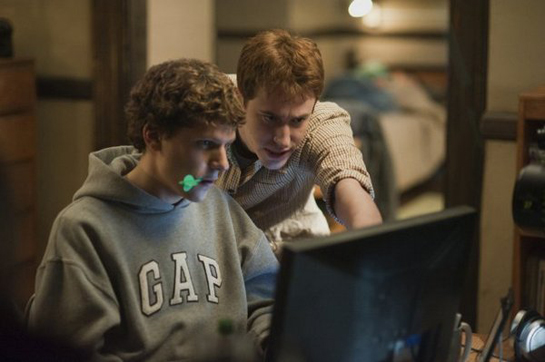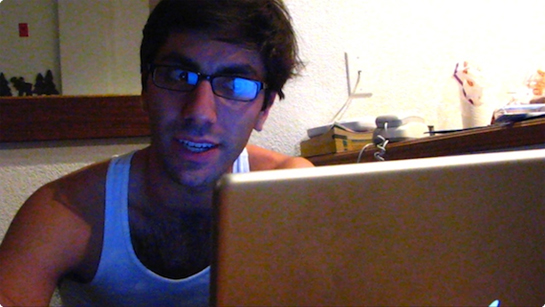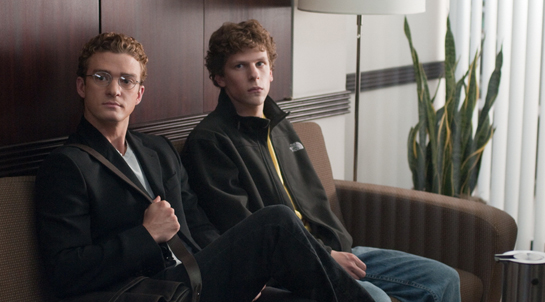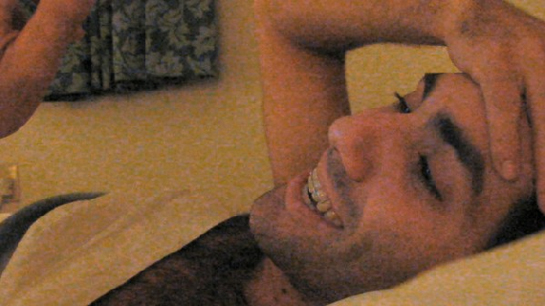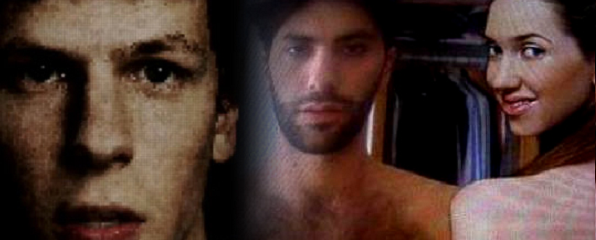
‘The Social Network’ vs ‘Catfish’: The Two-Faced David Fincher
Culture, Film, ReviewsIn its short life, Facebook has made itself feel like an inevitability, a necessity, a given. This fall has seen the release of two high-profile films based upon the social networking phenomenon: the Oscar-buzzing, David Fincher-directed drama The Social Network (Oct. 1) and the much-hyped left-field documentary Catfish (Sept 19). The coinciding of their release dates is a savvy move (most likely on the part of no-budget Catfish.) The two work as a complementing pair and timely comment on the dual nature of the site, each proposing very different truths about Facebook: in The Social Network, Facebook is social progress. In Catfish, it is manifest alienation. Both make for powerful, albeit radically stylistically dissimilar essays on the culture of the “connected.”
In an effort to remain as spoiler-free as possible, summaries will remain brief: The Social Network is a very cleverly written, expertly shot and wonderfully acted drama that fictionalizes (to an extent) the early days of Facebook’s conception and birth, and the legal fight over its intellectual proprietorship that followed. Billionaire wunderkind Mark Zuckerberg is portrayed as a friend-desperate, cocky, and often dishonest anti-hero who had the genius to create a website that would revolutionize the entire 21st century social experience. By now, you’ve probably seen it. Catfish on the other hand is a very cheap documentary that created a small sensation at Sundance this year and is now getting grass-roots hype and wider distribution. It begins as a story of a 24 year-old New York photographer, Nev, who becomes intimately and artistically involved with a Michigan family (particularly mother Angela and prodigious 8 year-old painter Abby), primarily through Facebook. His brother and friend document as Nev eventually begins a romantic phone/online relationship with eldest daughter Megan. Things get weird get from there. The film’s promotional tagline prevents me from sharing any more details.
Now, there is a lot of noise on the pseudo-academic level at the moment on social networking, much of it ironically in hindsight for such an immediate social presence. Both of these films, however, exist within the Facebook generation, in which the site itself isn’t what is up for debate, but the ramifications of the presumed-inevitable networking universe. The films eschew the redundancies of arguments against the very existence or validity of a site that is clearly not going anywhere. Facebook, unlike predecessors, is fluid and able to adapt to rapidly changing times, solidifying its place in day-to-day life and its influence over the very concept of social networking. (As a side note, I honestly believe the “sensation” that Twitter has created came largely as a result of the mainstream media’s general sense of missing out on Facebook when it first took storm, and as such artificially made Twitter “the next thing” as soon as they got the first whiff of it. Modern news agencies are so proud of themselves when they check for “tweets” on current events).
Being young-ish myself, I don’t really buy the lie that Facebook has eroded our ability to have conversations and make real friends and blah blah blah. Like most, I show pictures to friends and send messages to family and promote events on Facebook. Nothing sinister, life-controlling, or such that I can’t make real-life friends. On an “average person” level, I believe that the site is rarely the escapist, unbearable crutch that condescending critics frequently purport, but a means of connectivity, narcissism and interaction that goes beyond efficiency to the point, admittedly at times, of compulsion. However, there are many people living above and below “average” modicums of normalcy, and for a certain denominator, Facebook is a sad place. On the supposition that the content of Catfish is, in fact, entirely non-fiction (which I will concede for the sake of this essay), then mysterious matriarch Angela is certainly a case to be made for the hazardous ability the site gives us as people to hide behind the very idea of persona. We create public personas for ourselves, and for the terminally unhappy (or even simply the bored or lazy or casually manipulative), these personas can be dangerously dishonest.
There is of course dishonesty at the heart of The Social Network’s narrative, but it is almost treated as a necessary means for the film’s genius anti-hero. It is a very compelling movie, aesthetic splendor aside, because it is very rare that we are able to see the story of the creation of something so ubiquitous in our lives unfold with so much drama. I mean, this guy is younger than me. The story of cell phones or eyeglasses or coffee mugs can’t be anywhere near this fascinating or immediate. But it does less to reveal the nature or implications of Facebook as the contemporary self-identifying signifier of a generation than Catfish’s horror story does. It’s a great “how’d they do that?” movie, a great buddy-betrayal movie, a great piece of recent-history drama. But by treating the site as a Golden Ticket worth fighting and lying for, the film negates any real exploration of the implications of the social network, instead only glorifying its forward-thinking innovation and its role in the progress of the online social experience. Which serves the film’s purposes, and frankly the audience’s as well; a dissection on the value of the site itself would have been, as stated earlier, exhaustive and redundant.
Catfish doesn’t condemn the site. No one learns a sweeping message about Facebook and swears off using it forever. Nev and Angela are both still users, as the film makes special mention of. In Catfish’s world, our world, Facebook is already there, like it always has been. Its twisting road into human deception is a personal story; the site is merely a means that affords Angela a vehicle for escapism, voyeurism, and make-believe. But again, like The Social Network, Catfish is in the present, where we accept that Facebook is simply a part of the contemporary experience, with a dual nature and capacity for good and bad and the shades in between. We look at the site with skepticism, irony, and at times fear and loathing. But we also know, for all the picking and prodding and doubting, that this social universe is our social universe; our participation is ours to control, and behind all the pictures and stories and status updates, it’s all just humans being human.





